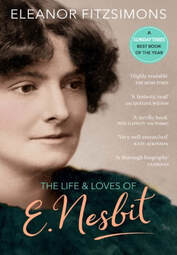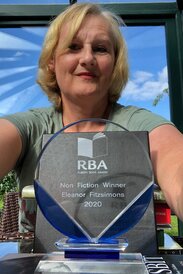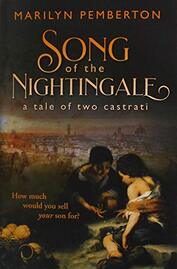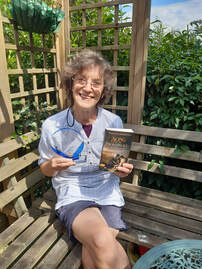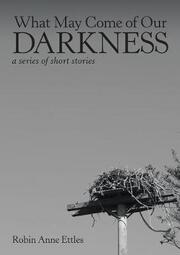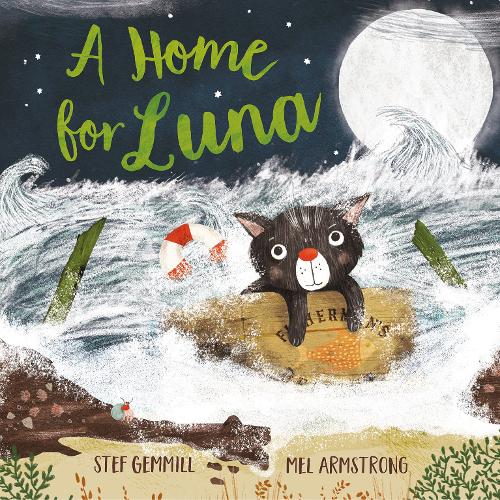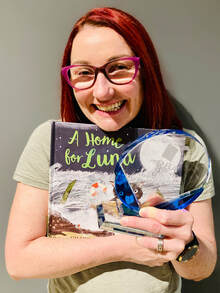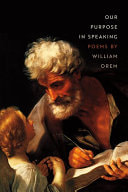2020 Category Winners
2020 Shortlist
Non Fiction |
Fiction |
|
Who Says You're Dead?: Medical and Ethical Dilemmas for the Curious and Concerned - Jacob Appel
A fascinating book about medical ethics aimed at lay readers. The book is well structured and the bite-sized case studies make it easily digestible. While it would have been nice to have seen some issues unpacked more fully, he is able to cover a lot of ground, and the book teems with interesting dilemmas. Particularly apposite to our times is the case of Typhoid Mary, and the issue of mandatory quarantines. We can probably assume that the authorities in Wuhan didn't spend much time pondering the civil rights implications of this moral quandary! In the main it’s an entertaining book, underpinned by intelligence and philosophical nous. The Life and Loves of E. Nesbit - Eleanor Fitzsimons This is a well-written biography, beautifully put together, and something of a revelation, both in terms of Nesbit’s astonishing creative energy, and pleasing eccentricity. The book offers nice portraits of her many interesting friends, lovers, and acquaintances, particularly G. B. Shaw, and it presents an informative, entertaining context for her work, quoting extensively from letters, newspapers and previous biographies. References to Nesbit’s books are woven into the biographical detail, how the name of a real-life acquaintance or friend was chosen for one of her characters, so since it's subtitled 'author of the Railway Children', it’s perhaps surprising that there isn’t more information about the genesis and development of her most famous book. But this isn't really a shortcoming. All in all, the depth and breadth of Fitzsimons’ research is very apparent and it's a well-researched, eminently readable biography of an impressive woman. Children of a Faraway War - Wendy Gruner A memoir in which the author and her sister, Robbie, reconstruct their father's life in WWII. Based on his own diaries, the book details his military training, and his posting in the UK, alongside accounts of his daughters' research visits to Europe. They trace his wartime route around England and Scotland, culminating in a visit to the site of the airbase at which he perished. The book is nicely structured, and written with fluency and depth. We get a good account of WWII military life, fascinating for those interested in the period, and a strong sense of the sisters' own emotional journey. They’ve clearly grown up idealising their father, so this exploration of the past reads as a labour of love. Take It Lying Down - Jim Linnel The story of a drama professor who becomes paralysed after falling from a porch and breaking his neck. The memoir, pleasingly structured into Acts like a play, details the shock of the accident and its immediate aftermath, followed by his gradual rehabilitation and improvement to a state of partial paralysis. It's an impressively literate and poetic account with an intelligent philosophical dimension: he views his predicament through the lens of the literature that's been central to his career, and we see how this deepens his understanding and acceptance of this life-changing accident. It's inspirational in this sense, reminding us of the role that writing can play in our lives, both in terms of therapy and insight. Dispatches from the End of Ice: Essays - Beth Peterson A personal response to the global warming crisis, dealing with climate change, melting ice and rising sea levels with the extended metaphor of melting and disappearing. It details the author's travels around the world and her assessment of its changing landscapes. She writes well and at its best the book is captivating in its enthusiasm – strong points were her obsession with maps, the impressive depth of her erudition and her seemingly unashamed status as an ice-geek. Some sections are very entertaining – particularly the accounts of Wittgenstein's cabin and Norwegian mythology, which supplement her topographical and scientific observations nicely. |
The Peril - Virginia Cox
The second in The Merchant of Secrets series, following the adventures of Matteo, a young man who finds himself acting as a spy for Pope Julius II at the time of the Protestant Reformation and the Italian Rennaisance. Disguised as a Friar he’s sent to Paris on a secret mission and then travels through France and back to Italy, with nice cameo parts for well known Renaissance figures like Erasmus and Machiavelli. The novel is clearly underpinned by substantial research, and the period detail, which rarely intrudes, is superb. The author really seemed to know her stuff, and the style is consistent and well-written. An accomplished piece of work. The Falls of the Wyona - David Brendan Hopes
A coming of age novel set in mid-century rural America just after WW11. It centres on four friends growing up in a small town near some dangerous but captivating falls on an Appalachian river. Trips to the Falls are a rite of passage for the friends, Arden, Vince, Tilden and Glen, and a place in which they explore their masculinity, including a sexual relationship between Vince and Glen. It’s complicated by the fact that Vince is the local heart-throb and football hero and his conservative, ultra-masculine father coaches the school football team. This is a tragic love story, psychologically convincing. The writing is sharp, often lyrical, and sometimes humorous; the narrative is well paced with a tension that builds gently as the characters' conflicts are revealed. A very enjoyable, succinct and sensitive novel. Peculiar Savage Beauty - Jessica McCann An interesting foray into Steinbeck territory from a female perspective. RJ is a soil erosion specialist who sets up a government funded laboratory in Oklahoma during the early thirties. Her struggle to establish herself in the rural community, who find it hard to accept a woman with a Geology degree, is outweighed only by her fight against nature and the dust storms that blight the region. The central character is convincing, as are the scientific details, and the vivid account of the brutal environment. RJ's relationship with Woody, her autistic handyman, is well handled. Both are outsiders, misunderstood characters. In this way, since, as 21st century readers, we know more about feminism and autism, dramatic irony plays an interesting part. A fast-paced, satisfying novel. Dodging Satan - Kathleen Zamboni McCormick The story of a young girl's attempts to navigate her way through a Catholic upbringing in mid-to-late twentieth century America. Bridget is the daughter of an Italian mother and an Irish father, who struggles to reconcile her religious education with the reality of family life. As she matures, she begins to notice that the patriarchal dictates of God-the-Father are replicated in life beyond the church, and her scepticism deepens to a point where the Virgin Mary comes to seem like the ultimate in oppressed women. It deals with huge topics with great poise: religion, the immigrant experience and women’s position in society. It's a lovely book, teeming with great comic moments, vividly rendered characters, and razor sharp wit. Song of the Nightingale - Marilyn Pemberton Set in eighteenth century Italy, this novel is narrated by Philippe, secretary to Count De Lorenzo, and the lover of his wife, Eleanora. He facilitates the purchase of young boys who're transported to Florence, castrated, then trained to sing for the glory of God. The focus is on two castrati in particular, Fabio and Roberto, whose lives become linked with Philippe’s. From the harrowing opening to its poignant end, the story moves with pace, driven by Philippe's moral and emotional conflicts. His clandestine love for Eleanora, his sense of responsibility toward Fabio and Roberto, and his eventual love for an eccentric healer, Sofia, with whom he forms a strange and powerful bond are all portrayed with enjoyable conviction. A confidently written novel that moves with pace. |
Short stories |
Children |
|
The Forgotten and the Fantastical 5 - edited by Teika Bellamy
This is a strong anthology of fables and fairy stories re-written and there’s some interesting stuff here. The judges enjoyed and admired several of the stories: Angela Readman's evocative reimagining of Little Red Riding Hood in the manner of Angela Carter has weight; Katie Grey's The Glass Legs (or, it's easier than you think), explores gender and sexuality an imaginative way; Donna M Day's story of a woman who married an android has an enjoyable twist at the end; Rosie Garland's story, Princess, Star, Brilliant, about patriarchal conditioning is creepy and well-judged; and Jonty Levine's Human Point-oh, in which bald men’s hair grows back following a computer upgrade was a favourite of one of the judges for personal reasons! A strong collection. What May Come of Our Darkness - Robin Anne Ettles There is plenty of darkness to be found in these stories. 'Gerry and Cody Watts' presents a father and son who die in a car accident on their way home from a drinking session: the story's reference to Leah, a mysterious figure who interests both men, hints at damaging secrets and tacit betrayals. Marathon, about a man who becomes overprotective towards his stepdaughter, suggests a different kind of darkness, born of taboo desires. Intermission depicts a subtler darkness, in the form of a man who hates theatre intermissions: in this particular break he sees an ex-lover with what he assumes is his child, and returns to the play to contemplate the drama of his own life, and the mistakes he may have made. The Price Of Admission is brilliantly written and superbly put together. Snappy, lucid stories with well realised scenes and strong characterisation. There are some very, very good turns of phrase, and the construction of each story is extremely adept. Brilliant. American Grief in Four Stages - Sadie Hoagland The opening piece, Cavelier Presentations, is about a woman who sleeps with a neighbour in order to realise a fantasy from her past: her former crush on an older man, Mr Blue. The desire to make this real is born of a need to escape her mother's lack of sensitivity, and the bald reality of her own illness. It's an imaginative and psychologically convincing story, immensely enjoyable. The second piece, set in seventeenth century Salem, explores the nebulous boundaries between superstition and madness in an original and evocative way. Hoagland uses metaphor to hint at the difficulties underpinning relationships, and the hard-to-define fears that impact on her characters' lives. Considering the theme of these short stories is trauma, loss and suffering, these are beautifully written, intelligent and complex, and successfully experimental. She's a very talented writer, and this is a high-quality collection that includes several stunning stories, setting the bar very high with the opening stories. Shore to Shore - Tamsin Hopkins A collection of short stories with the theme of water (rivers, canals etc.) written with a commendable variation in style. Some stories are about water, while others take place near water, and the idea is that the various flows of each body of water is a representative theme in each story. In the stunning opening story, Hani's Baby, the eponymous hero flies a hot air balloon over the skies of Egypt, carrying the body of his still born son. It was a vivid account of Hani's predicament, trapped in a life of stultifying tradition and expectation, and the ballooning details give extra strength. Good, entertaining stories. Not Dead Yet and Other Stories - Hadley Moore A collection of stories on the theme of loss. When My Father Was in Prison begins with reference to a bird that is taught to say Nevermore, and nicely charts a young boy's struggle to accept what the world seems to teach. As he and his brother face the consequences of their father's imprisonment, we watch them navigate an uncertain course through a terrain made strange by loss. It's a superb opening to an outstanding collection. The Entomologist tells of an expert in termites whose own house is infested. It draws clever parallels between this infestation, the tenants who occupy her property, and a group of hippies who use her garden space for growing - it's a rich, absorbing piece which deals with themes of ownership and autonomy with refreshing originality. The brilliant title story, Not Dead Yet, depicts a couple who meet at a group for bereaved couples, only for one to be stricken by a cancer identical to that which killed her husband's former spouse. It's a tale about coincidences, but also about the consequences of trauma, and the strange emotions it generates. First rate writing. |
Fantastic Female Adventurers - Lily Dyu
This is a non-fiction book that examines the real-life stories of fourteen daredevil women who have accomplished things that most of us would never even dream of. These include swimming the world’s oceans, skiing to the North Pole and flying into space. It’s a fascinating book with diverse and valuable role models, some of whom I’d heard of and some I hadn’t. It’s extremely child-friendly, and I particularly liked the global emphasis - there’s a beautiful full-colour map at the front of the book, indicating where the adventures took place. Production values are high, the cover is glossy and attractive and the quirky illustrations are also very pleasing. The coloured pages within the text are particularly appealing. I can’t imagine any child not finding something of interest in this book. A Home For Luna - Stef Gemmill & Mel Armstrong This is everything a picture-book should be. The story is lovely – Luna, a black and white cat, is far from home, washed ashore in a remote place where eventually she’s befriended by a colony of penguins, including Tiny and Yellow-Eye. When a man passing by in a boat attempts to rescue her, Luna doesn’t want to leave, and she and her new friends join forces to drive him away. The illustrations are delightful, particularly the final picture where Luna is nestled at the feet of Tiny and Yellow-Eye like a penguin chick. The story has universal themes that even very young children will be able to recognise. The idea of ‘home’ and feeling safe and having friends are all very simple concepts for children to understand, because they’re central to their own lives. For this very reason, however, they do feature a great deal in picture-books, and it takes no little skill to come up with something as original and appealing as this story. Ella's Umbrella - Courtney Shannon Strand I loved the sheer energy of this book as Ella grabs her new red umbrella and rushes out to enjoy the rainstorm. It’s an enjoyable trip for the reader, too, as they join Ella on her energetic journey to the finale of the story when the storm ends and a rainbow appears. The rhyming text is perfectly complemented by the colourful illustrations. In fact, the text and the pictures flow along together beautifully from page to page. The little details are gorgeous, such as in the repeated refrain ‘as the rain drops a capella’ where some of the falling raindrops are pictured as musical notes. It’s the perfect book to read aloud to a young child, and one can imagine any child very quickly picking up on the rhymes and joining in as the story fizzes along at breakneck speed. Theodore the Unfortunate Bear - Cory Q, Tan This is a sweet story about a teddy bear named Theodore who is driven to distraction by his ‘family’, the Chows. However, when the Chows leave home and don’t return, Theodore becomes worried and begins to miss them. Having seen a story in the newspaper of a family that have been abducted by aliens, he bravely sets off to search for them. There are some nice humorous touches throughout this story (the dolls with ‘big eyes’, Brownie the dog playing dead) and it’s well told, if slightly wordy. The real stars, however, are the astounding illustrations. The attention to colour and details, such as the background wallpaper in the Chows’ home, are wonderful. My particular favourite is the almost-aerial view of the Chows’ living-room on Page 13, and it’s easy to imagine readers noticing something new each time they return to the story. Two Sisters, One Sarong - Lorraine Yoong This is a beautifully-presented book with high production values, an appealing story and gorgeously colourful illustrations. Gituan and Riang are sisters who fight over ownership of a sarong, a family possession that both of them treasure. The sarong ends up torn in two, but the sisters have to reunite the two halves in order to save their baby sister, Inang. The topic of sibling rivalry is something that many young readers will recognise and have experience of, so the story is very child-friendly. There is perhaps a little too much authorial comment that isn’t really required, as the story itself is enough to make the point. Nevertheless, this is a really lovely book. |
Poetry
Kin - Hugh Dunkerley
Much of the first part of the book addresses birth, babies and children. Poems like In Vitro focus on life at the cellular level, while others, like Ant, explore a child's first encounters with the world - all executed with poise and apposite detail. Later in the collection the themes broaden - he particularly enjoys exploring our relationship with the natural world, always grounding his theme in specific encounters that feel authentic. His voice is consistently assured and sensitive, and this is an excellent collection.
The Lithium Codex - Oz Hardwick
These prose poems, like those in last year's winning pamphlet, occupy the realm between coherence and nonsense. They're simultaneously grounded and elusive, reminiscent of the contemporary prose poet, Luke Kennard. They are readable even at their most obscure, and this is principally due to Hardwick's wit, which somehow works to legitimise the various incongruities that pervade this odd collection. One of the judges’ favourites was 'Be Your Own Personal Jesus'. It expresses a similar sentiment to that of a Johnny Cash song: 'Walking on water is easy once you have the knack' he tells us, 'just a matter of knowing when to shift the weight from one foot to the other before it breaks the surface'. The fact that this seems almost plausible is the key to his appeal.
Our Purpose in Speaking - William Orem
This is an astonishing collection of thematically eclectic poems with a strong voice and an impressively consistent level of intelligence. Particularly striking is the significance of the spiritual in the book, which is explored in a variety of ways. The opening sonnet, My Mother Refuses Mastectomy, for instance, addresses the life-defining narratives of religious myth, querying the optimism that underpins them; elsewhere spiritual concerns are explored even more sceptically, as in Critical Care where a priest hovers at a dying mother's bedside, 'full of inaccessible smiles'. The poet's ambivalence on this and other issues often creates a powerful tension: he interrogates numinous experiences in ways that set scepticism alongside a willingness to acknowledge the relevance and potency of the ineffable. This is something he does to wonderful effect in sonnets like Francis to the Birds, where bird song takes the place of prayer, and Snowfall Expected After Midnight, which considers the survival instincts of animals: creatures who, like us, are animated by forces beyond understanding, and, of course, beyond the constraints of language. To use a phrase from the title poem, this writing leans 'towards the truth', brimming with effortless, apposite imagery that brings scenes and ideas to life with startling, riveting force.
Eat the Marrow - Mara Adamitz Scrupe
This is an innovative, impressive collection, which mixes typographical experimentation with exquisite diction. The textured language and deep rhythms of poems like The Dyer's Hands and Panopticon are striking and it feels that the author is sitting on a volcano of words. The imagery is original and arresting throughout and the voice distinctive and strong.
Decoding Sparrows - Marino Zaro
Lovely narrative poems, many of which focus on life growing up in Spain. The style is expansive, offering fully realised scenes and delightful moments of insight and epiphany. From wrapping plums with his father to watching a nun eating an apple on the bus, Zaro has an unerring feel for significant detail. Like Raymond Carver, he is a master of understatement, presenting lucid slices of life with subtlety and effortless fluency. Very enjoyable.
Much of the first part of the book addresses birth, babies and children. Poems like In Vitro focus on life at the cellular level, while others, like Ant, explore a child's first encounters with the world - all executed with poise and apposite detail. Later in the collection the themes broaden - he particularly enjoys exploring our relationship with the natural world, always grounding his theme in specific encounters that feel authentic. His voice is consistently assured and sensitive, and this is an excellent collection.
The Lithium Codex - Oz Hardwick
These prose poems, like those in last year's winning pamphlet, occupy the realm between coherence and nonsense. They're simultaneously grounded and elusive, reminiscent of the contemporary prose poet, Luke Kennard. They are readable even at their most obscure, and this is principally due to Hardwick's wit, which somehow works to legitimise the various incongruities that pervade this odd collection. One of the judges’ favourites was 'Be Your Own Personal Jesus'. It expresses a similar sentiment to that of a Johnny Cash song: 'Walking on water is easy once you have the knack' he tells us, 'just a matter of knowing when to shift the weight from one foot to the other before it breaks the surface'. The fact that this seems almost plausible is the key to his appeal.
Our Purpose in Speaking - William Orem
This is an astonishing collection of thematically eclectic poems with a strong voice and an impressively consistent level of intelligence. Particularly striking is the significance of the spiritual in the book, which is explored in a variety of ways. The opening sonnet, My Mother Refuses Mastectomy, for instance, addresses the life-defining narratives of religious myth, querying the optimism that underpins them; elsewhere spiritual concerns are explored even more sceptically, as in Critical Care where a priest hovers at a dying mother's bedside, 'full of inaccessible smiles'. The poet's ambivalence on this and other issues often creates a powerful tension: he interrogates numinous experiences in ways that set scepticism alongside a willingness to acknowledge the relevance and potency of the ineffable. This is something he does to wonderful effect in sonnets like Francis to the Birds, where bird song takes the place of prayer, and Snowfall Expected After Midnight, which considers the survival instincts of animals: creatures who, like us, are animated by forces beyond understanding, and, of course, beyond the constraints of language. To use a phrase from the title poem, this writing leans 'towards the truth', brimming with effortless, apposite imagery that brings scenes and ideas to life with startling, riveting force.
Eat the Marrow - Mara Adamitz Scrupe
This is an innovative, impressive collection, which mixes typographical experimentation with exquisite diction. The textured language and deep rhythms of poems like The Dyer's Hands and Panopticon are striking and it feels that the author is sitting on a volcano of words. The imagery is original and arresting throughout and the voice distinctive and strong.
Decoding Sparrows - Marino Zaro
Lovely narrative poems, many of which focus on life growing up in Spain. The style is expansive, offering fully realised scenes and delightful moments of insight and epiphany. From wrapping plums with his father to watching a nun eating an apple on the bus, Zaro has an unerring feel for significant detail. Like Raymond Carver, he is a master of understatement, presenting lucid slices of life with subtlety and effortless fluency. Very enjoyable.


